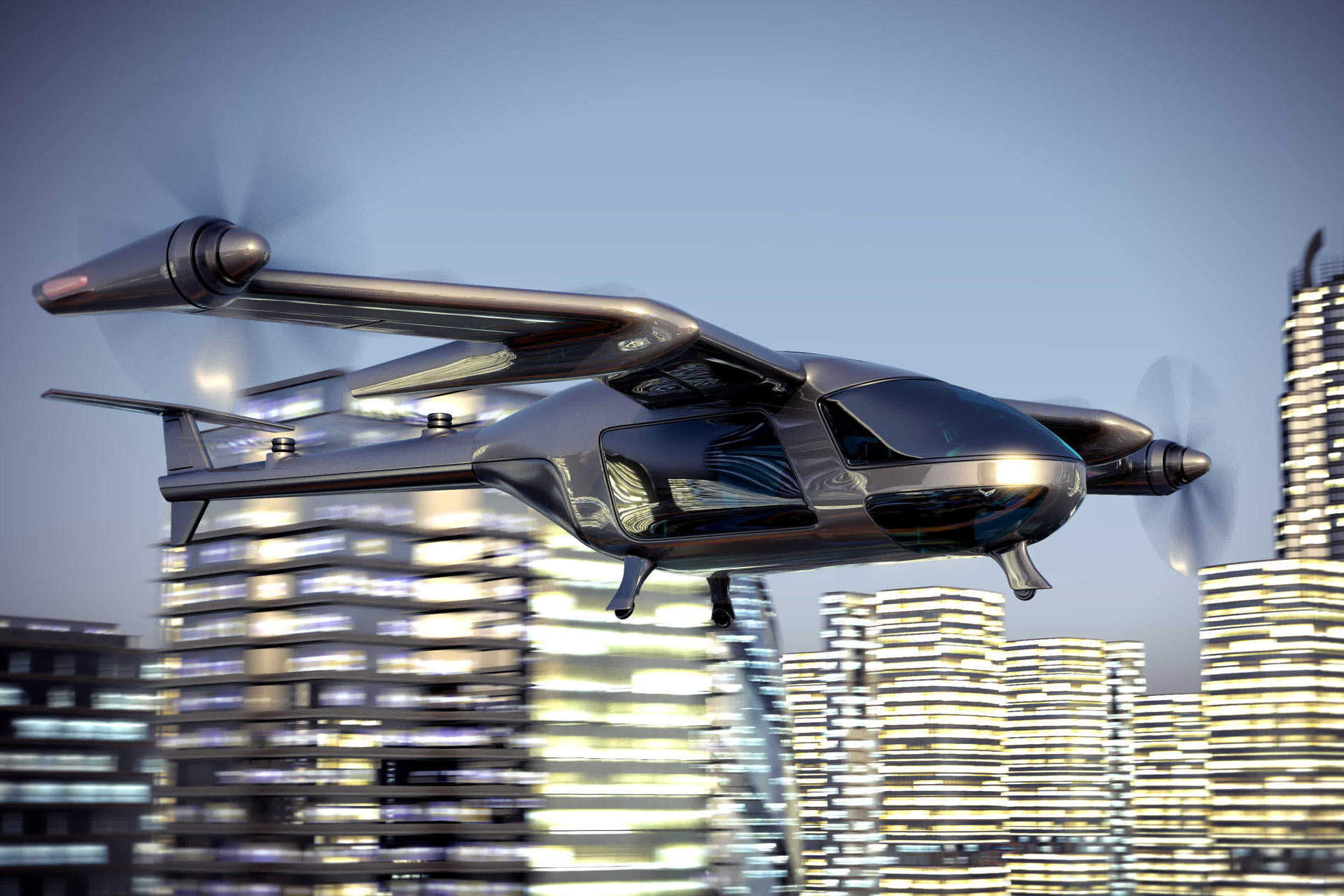
With smart cars increasingly common and self-driving cars getting ever closer to becoming a reality, the roads in major cities look set undergo a transformation.
However, with recent statistics from public transport provider the Go-Ahead Group revealing that traffic jams are costing commuters more than 55 hours of sleep a year, could commuters soon ditch the roads altogether and take to the skies instead?
With urban traffic congestion affecting every major city and putting strain on infrastructure, remotely-piloted passenger drone taxis may be the answer.
Drone taxis are automated vehicles similar to the drones that most are now familiar with but scaled up to be large enough fit passengers. What makes them different to other air vehicles is that they are unmanned, and can fly close to the ground, making them a viable option for commuting.
Several projects trialling drone taxis are already operational around the globe. In 2017, Dubai conducted its first tests of an unmanned drone taxi service, an unmanned two-seater taxi was flown for five-minutes. Similarly, Chinese drone manufacturer Ehang successfully completing a manned test flight of its 184 drone earlier this year.
Drone taxis in less than a decade
There are several businesses developing individual urban air transport. Amongst them is German company, Velocopter. The company is due to showcase its latest passenger drone, the Volocopter X2, an 18-rotor taxi drone, at the upcoming FAI International Drones Conference and Expo, and hopes that it could become the “yellow cab of the future.”
How well do you really know your competitors?
Access the most comprehensive Company Profiles on the market, powered by GlobalData. Save hours of research. Gain competitive edge.

Thank you!
Your download email will arrive shortly
Not ready to buy yet? Download a free sample
We are confident about the unique quality of our Company Profiles. However, we want you to make the most beneficial decision for your business, so we offer a free sample that you can download by submitting the below form
By GlobalDataCo-founder and chief innovation officer at Volocopter Alex Zosel believes that drone taxis could be a feature of smart cities in less than a decade:
“It’s closer than you think, we expect the next demo cases to happen in 2019 and the first commercial routes will be open for use within five years. In Bruchsal, near Volocopter’s headquarters, the Volocopter flies regularly as part of our flight test programme, showing that technologically, air taxis are possible. Now we are working together with cities and partners to show how such an air taxi system can be integrated in existing infrastructure.”
A significant step in establishing drone taxis as a viable transportation system is working out how they can safely operate in the lower airspace. This requires regulation and an air an air traffic control system specifically for this type of vehicle. The capacity and height at which they will be permitted to fly is yet to be established and Zosel believes that this must occur before the technology can take off:
“The two biggest topics that still need to be defined before air taxis take off are the air traffic management system for the lower air space in cities and regulation. The air traffic management system will monitor and coordinate all Volocopters, emergency helicopters, parcel drones and other participants in the lower airspace…The other topic is certification. As we are already in close contact with the European Aviation Safety Agency (EASA) to define what is necessary for certification and what a flight test programme will look like, we know that they are excited to be an enabler of this new technology.”
Which cities will get drone taxis first?
In terms of where the first drone taxis will be put into commercial use, Zosel is unsure, but believes that those wishing to become smart cities will embrace the technology:
“Cities from around the world are approaching us to integrate air taxis into their mobility solutions. It is impossible to say which city will open the first commercial Volocopter route at this moment, but in the past few months, a number of Asian cities have been very keen to show their innovative spirit and smartness by pushing the topic of air taxis.”
However, what is certain is that the technology must be accessible and affordable for its benefits to be fully harnessed. Zosel believes it is vital to ensure drone taxis are not prohibitively expensive:
“Helping to relieve the impeding traffic chaos in megacities and changing the way people travel around their home town, is only possible, if you provide a service with high capacity. Offering an air taxi for a few rich people will not solve the infrastructure challenges cities are facing today…We are also big fans of flying, so making urban air taxis affordable for the many, not the few, is important. Taxi drones will allow them to see their city from a whole new perspective. I like the idea of that.”







